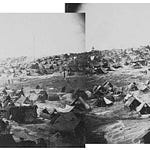Originally published on March 24, 2021 (Episode 201)
Introduction
In 1696, Isaac Newton, then Lucasian Professor of Mathematics at Cambridge University, moved rather suddenly to London. There he became Master of the Royal Mint, residing at first within the Tower of London itself. By the end of his life, he would have spent more time living in London than in Cambridge.
Yet historians have often been reticent—perhaps even embarrassed—to delve into this “second act” of Newton’s life. After gravity, the calculus, and optics, the rest might seem pedestrian. Fortunately, Patricia Fara, Emeritus Fellow at Clare College, Cambridge, has taken Newton’s London years seriously.
In her book Life After Gravity: Isaac Newton’s London Career, she unpacks Newton’s other life: as a royal official, a courtier, a builder of institutions, a proponent and beneficiary of empire, and an acquirer of worldly goods. Along the way, she shares gems such as:
the number of silver chamberpots Newton owned when he died (two)
what Newton changed about Britain’s money
his favorite book of the Bible (the Book of Daniel)
where he invested his growing fortune
and his short-lived political career as Member of Parliament for the University of Cambridge
Threaded throughout the book is an analysis of a painting by William Hogarth, in which there are many Newtonian resonances—offering a striking way of connecting ideas, politics, and material culture.
About the Guest
Patricia Fara is Emeritus Fellow of Clare College, Cambridge, and a leading historian of science. She has written widely on science, gender, empire, and Enlightenment culture. Her books include A Lab of One’s Own: Science and Suffrage in the First World War, and Science: A Four Thousand Year History.
For Further Investigation
Patricia Fara, Life After Gravity: Isaac Newton’s London Career
Patricia Fara, A Lab of One’s Own: Science and Suffrage in the First World War
The Newton Project (University of Oxford): digital edition of Newton’s papers
Hogarth, “The Indian Emperor”, an engraving discussed in our conversation
Listen & Discuss
Does Newton’s London career change the way you think about him? Share your reflections below—and send this episode to a friend who might enjoy seeing Newton not just as a scientist, but as a man of the world.











